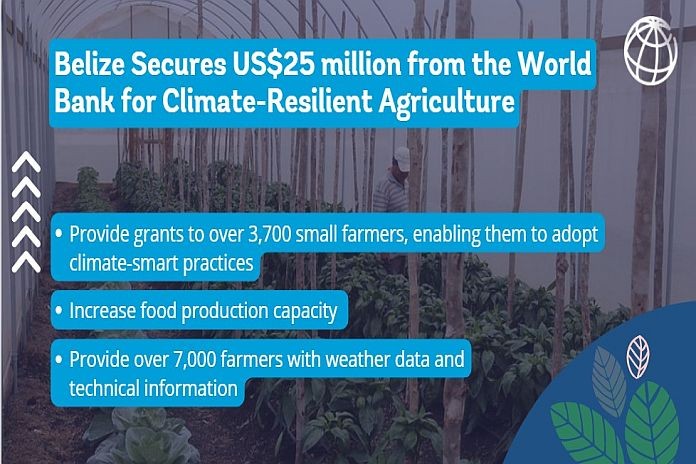WASHINGTON, USA – The World Bank’s board of executive directors has approved financing of US$25 million for the Belize Climate Resilient and Sustainable Agriculture Project, which will aim to increase food production capacity and the adoption of climate-smart agricultural approaches among project beneficiaries.
The project will provide over 7,000 farmers with weather data and technical information to help improve yields for crops and livestock and facilitate better planning. The project will also provide grants to over 3,700 small farmers, enabling them to adopt climate-smart practices to improve the sustainability of their farms.
The matching grant scheme, combined with technical support for farmers, is targeted to leverage US$18.2 million in private financing for climate-smart agricultural technology. Importantly, 30 percent of grants will be targeted to women farmers in the project.
“I have seen firsthand how important farmers and agriculture are to Belize. Both the World Bank and Belize know the sector can be an engine of growth to support the well-being of families and communities and improve the economic prospects of the country,” said Lilia Burunciuc, World Bank Country Director for the Caribbean. “We have witnessed the importance of food security to the region, something that has been particularly underscored throughout the COVID-19 pandemic, and this project will accelerate efforts to address that in a climate-smart way.”
The COVID-19 pandemic has increased the challenges facing Belize’s agriculture sector. It disrupted supply chains, reduced purchasing power and weakened the demand for food products, including from Belize’s tourism sector. One of the project’s aims is to ensure that farmers become more resilient and produce food in an environmentally sustainable manner that meets the needs of local and international markets.
Farmers will benefit from training in improved practices, greater access to data, improved infrastructure for the sector and technical advice. The Belize Climate Resilient and Sustainable Agriculture Project will also fund capacity building for key intuitions that support the farmers, including the ministry of agriculture, food security, and enterprise, to better support the development of a more resilient, productive, and climate-smart agricultural sector.





